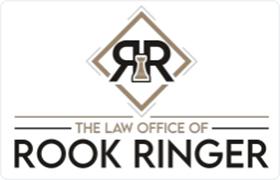Jacksonville White Collar Crime Lawyer, Florida
Sponsored Law Firm
-
 x
x

Click For More Info:
-
The Law Offices of Rook Ringer
1 Main St. Saint Augustine, FL 32084» view mapCriminal Defense Get On The Path To Results Today
Let us help you figure out your best next steps are. The sooner you have a plan of action, the better your chances of taking the correct steps to get the results you want.
800-819-8041
Kendra L. Bunn
✓ VERIFIEDWhite Collar Crime, Education, Immigration, Employment, International
Since 1999, Ms. Bunn has dedicated her entire career to the practice of immigration law. She was one of the first female attorneys to practice immigra... (more)
FREE CONSULTATION
CONTACTAllan F. Brooke
Traffic, White Collar Crime, Corporate, Products Liability
Status: In Good Standing Licensed: 32 Years
Mitchell (Mitch) Stone
White Collar Crime, DUI-DWI, Criminal, Personal Injury
Status: In Good Standing Licensed: 36 Years
Michael Roberts
Traffic, Litigation, White Collar Crime, DUI-DWI
Status: In Good Standing Licensed: 41 Years
Terry J. Shoemaker
White Collar Crime, Corporate, Criminal
Status: In Good Standing Licensed: 21 Years
 Rook Ringer Saint Augustine, FL
Rook Ringer Saint Augustine, FL Practice AreasExpertise
Practice AreasExpertise
